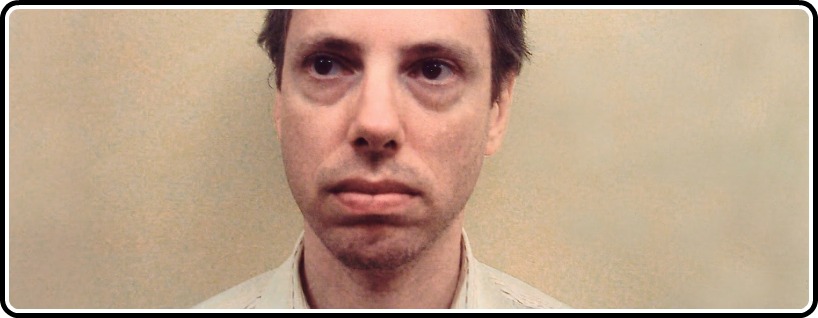Today’s film landscape is, by many accounts, fueled almost singularly by the almighty dollar. Be it the cavalcade of remakes or the continuing onslaught of fun, but disposable, comic book features, very few filmmakers are given the keys to a cinematic castle when it comes to the production of their films. However, one man who has been able to do nothing but make the films that his sick and twisted little heart desires is director Todd Solondz. With his efforts rewarded by a Criterion-approved release of his last, and sadly most underwhelming picture, Life During Wartime, things look up for the antagonistic auteur.
Too bad that his latest film, Dark Horse, doesn’t deserve as much as a glance.
Starring Jordan Gelber, Horse follows the story of a thirty-something man, currently living with his parents, who falls for a beautiful girl he meets at a wedding. Selma Blair, Mia Farrow, Justin Bartha and Christopher Walken all co-star in the film, which is both your run-of-the-mill tale of a romance hindered by mutual arrested development, and also one of Solondz’s most universal and marketable films.
It may also be the director’s most nauseatingly manipulative.
Directorially, the film is an odd beast. Not quite as visually inspired as a film like Wartime or Solondz’s earlier work (particularly something like Palindromes, this writer’s favorite Solondz film), the film doesn’t ask much of the man behind the camera. A handful of comedic music cues prove to be the most singular vocal moment for Solondz, whose palette is muted and camera is almost entirely stagnant save for a final act, that itself suffers from its own problems.
Jordan Gelber gets his largest role to date, and he knocks it out of the park. Save for the aforementioned final act, which will be discussed her in a moment, the audience is hard pressed not to fall in love with Gelber’s man-child. There is a sense of truth to his performance and his character, something that for a type of character that has built the comedic careers of people like Will Ferrell, is a tall order. Blair is equally as good, as Gelber’s romantic foil, and the film thrives when the two are on screen. Their chemistry is almost non-existent, but that very fact is easily the film’s strongest intellectual aspect.
Heavy handed with most of its themes, Horse‘s best moments come in those shared between Gelber and Blair. The pair know little to nothing about each other, but are thrust into a deep romantic relationship from the very outset of the film, only to spend their engagement learning everything there is to know about one another. When things are revealed, it is on them to try to weather the rather emotionally devastating storm, despite the fact that the pair both live with their families. Truly their respective family’s dark horses, they may live with their support system, but the system is far from supportive of their lives. However, everything is undone with the film’s final act.
Come the start of the film’s third act, something is revealed, only to not only change everything we saw previously, but where the film ultimately goes both emotionally and intellectually. Instead of being about the nature of family and humans in general, the film turns on a dime and instead of being memorable intellectually, it becomes immensely manipulative, finding Solondz at his most cheap and trite. Proving that Solondz has little love for his lead character, you realize that the film may not be as much a love letter to this generation, but a cinematic punch in that generation’s face from the fist of Solondz’s. The sourest of tastes to be left on one’s mouth, the ending may not ruin the 60 minutes prior, but it sure as hell does nothing but make it seem brazenly irrelevant and wholly uninteresting.
Spearheaded by two tonally one-note but intellectually intriguing performances, Dark Horse is both Solondz at his most broad and also his most frustrating. Far from his most aggressive or antagonistic, the film itself feels soft, forgettable and underwhelming. Hindered by an aggravating final act, the film works wonders as a look into aging and family for the first and second acts, and turns into a manipulative shocker for the final act. Simply put, Solondz has finally done it. He’s finally made a film full of endearing moments, and also one that feels lifeless and soul-free.






![Bergman Island (The Criterion Collection) [Blu-ray]](https://criterioncast.com/wp-content/uploads/2022/11/bergman-island-the-criterion-collection-blu-ray-400x496.jpg)
![This Is Not a Burial, It’s a Resurrection (The Criterion Collection) [Blu-ray]](https://criterioncast.com/wp-content/uploads/2022/11/this-is-not-a-burial-its-a-resurrection-the-criterion-collection-blu-ray-400x496.jpg)
![Lars von Trier's Europe Trilogy (The Criterion Collection) [The Element of Crime/Epidemic/Europa] [Blu-ray]](https://criterioncast.com/wp-content/uploads/2022/11/lars-von-triers-europe-trilogy-the-criterion-collection-the-element-of-400x496.jpg)
![Imitation of Life (The Criterion Collection) [Blu-ray]](https://criterioncast.com/wp-content/uploads/2022/11/imitation-of-life-the-criterion-collection-blu-ray-400x496.jpg)
![The Adventures of Baron Munchausen (The Criterion Collection) [4K UHD]](https://criterioncast.com/wp-content/uploads/2022/11/the-adventures-of-baron-munchausen-the-criterion-collection-4k-uhd-400x496.jpg)
![Cooley High [Criterion Collection] [Blu-ray] [1975]](https://criterioncast.com/wp-content/uploads/2022/11/cooley-high-criterion-collection-blu-ray-1975-400x496.jpg)